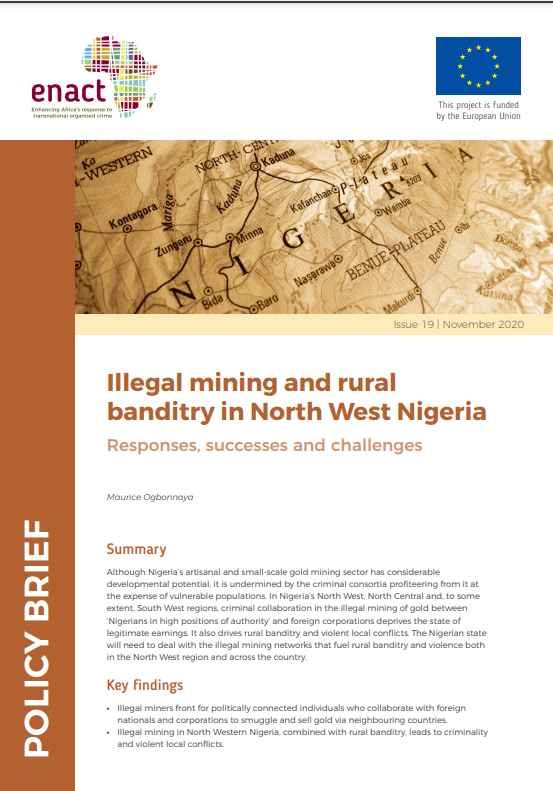By Maurice Ogbonnaya
Although Nigeria’s artisanal and small-scale gold mining sector has considerable developmental potential, it is undermined by the criminal consortia profiteering from it at the expense of vulnerable populations. In Nigeria’s North West, North Central and, to some extent, South West regions, criminal collaboration in the illegal mining of gold between ‘Nigerians in high positions of authority’ and foreign corporations deprives the state of legitimate earnings. It also drives rural banditry and violent local conflicts. The Nigerian state will need to deal with the illegal mining networks that fuel rural banditry and violence both in the North West region and across the country.
ENACT Africa, 2020. 12p.




